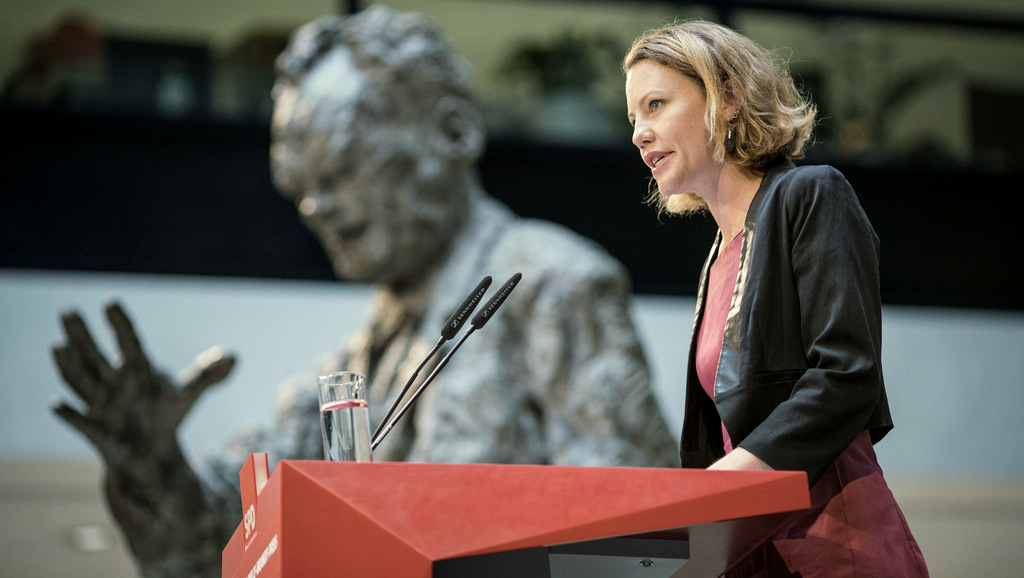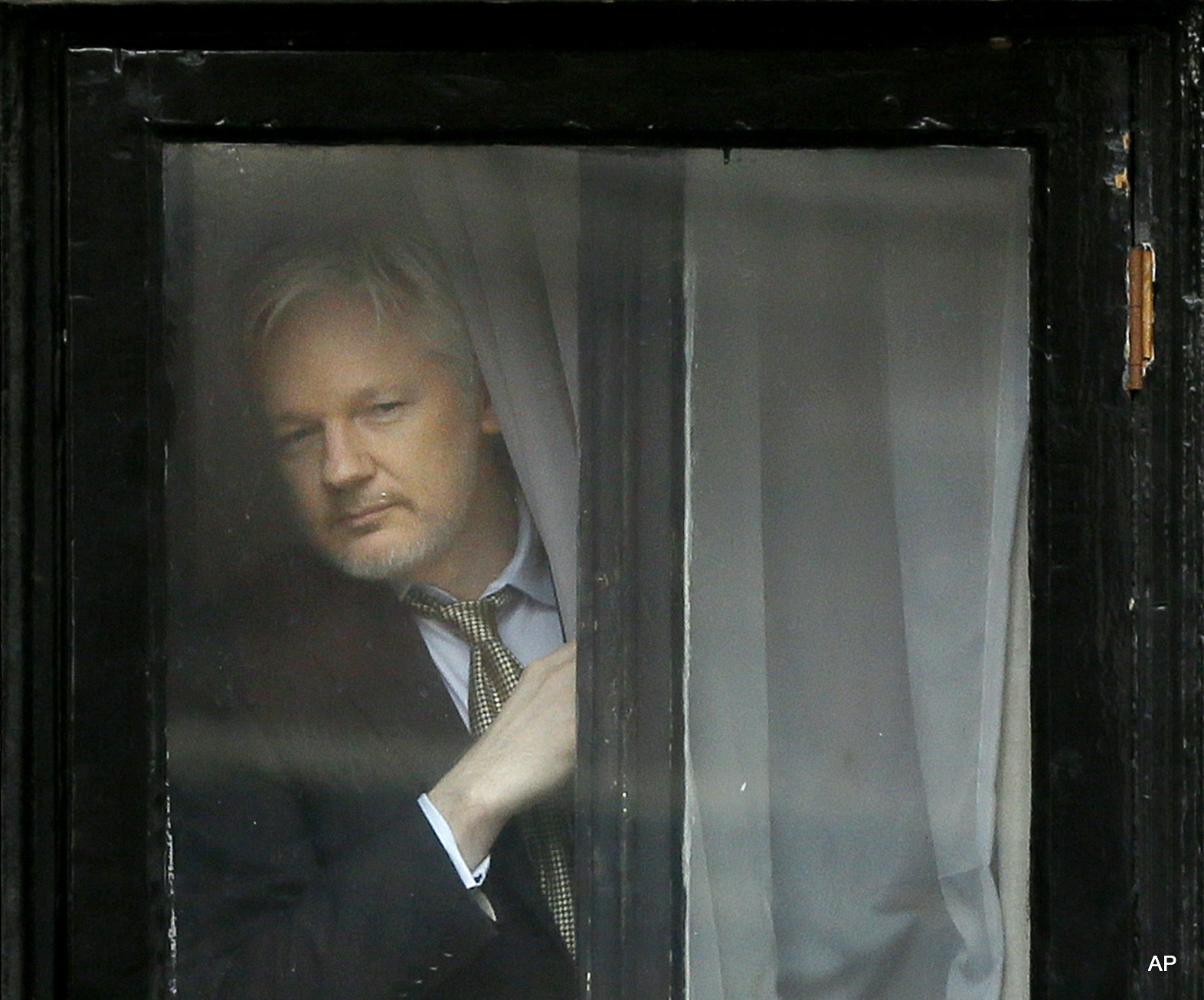
MUNICH — Despite being trapped for the past four years in the Ecuadorean Embassy in London, WikiLeaks founder Julian Assange still “stays strong” and makes plans for even more dramatic publications.
That’s the word from Sarah Harrison, the investigations editor for WikiLeaks who is perhaps best known as NSA whistleblower Edward Snowden’s ally when he fled from Hong Kong to Moscow, where he has lived on asylum since 2013. Harrison spoke with Zain Raza, senior editor at independent media collective acTVism Munich, in a June 11 interview about Assange and the government transparency website’s future plans.
“He stays very strong. He focuses on his work a lot, and with his type of personality and work ethic this keeps him very busy and keeps him going,” Harrison told Raza. “We have a lot of good publications coming up this year, so that definitely keeps him busy.”
Last month, Assange began his fifth year of confinement at the Ecuadorean Embassy, where he took refuge in 2012 out of fear of extradition to the United States. In the interview, Harrison explained the confinement puts Assange under considerable psychological strain:
“There are very difficult conditions that he is there under. For example, he basically is in one room within what is a very small embassy in the center of London. He has no outside space, he hasn’t been able to be in the sun for four years now. So, they are tough conditions, but he works through and he stays strong.”
Assange entered the embassy on June 19, 2012 under threat of extradition to Sweden for questioning over allegations of improper sexual behavior toward two women, but details of an ongoing U.S. investigation have emerged that suggest he could face decades in prison if he were subsequently sent from Sweden to the U.S. to face trial. The Swedish government only recently agreed to question Assange inside the embassy, and in February, a United Nations panel declared his confinement to be “arbitrary detention” and urged the United Kingdom and Sweden to release him immediately.
“Sadly, those countries are not actually following the United Nations judgement, but it is still a positive move forward in his case,” Harrison said in the acTVism interview.
Harrison also criticized British foreign secretary Philip Hammond’s reaction to the U.N. panel’s ruling. Hammond rejected the ruling, saying the panel’s conclusion was “flawed in law” and “ridiculous.”
“It is very sad to me, as a British citizen, that our MPs can stand there and say that the United Nations is ridiculous,” Harrison said. “To me, that is just sad and shows how much we have diverted from the rule of law in our supposed Western democracies.”

According to Harrison, open records requests have revealed that Assange and other WikiLeaks’ employees may face charges of conspiracy as well as charges stemming from violations of the Espionage Act and the Computer Fraud and Abuse Act — the same controversial law which led to charges against the late activist Aaron Swartz.
“We’ve seen through the history of the United States, for example, with the Chelsea Manning case, that she was given 35 years in jail and was subjected to treatment that was akin to torture. And this is what Julian can expect if he ends up in the United States,” Harrison said.
In 2013, Manning, a former Army intelligence analyst, was sentenced to serve 35 years in a military prison for leaking thousands of files to WikiLeaks, including diplomatic cables revealing the inner workings of the Iraq and Afghanistan wars, and “Collateral Murder,” a video that revealed the killing of Reuters employees by the U.S. Army. Manning recently attempted to take her own life after repeated struggles to secure her basic rights in the all-male military prison facility where she’s being held.
Harrison also rejected claims that WikiLeaks publications, especially leaked diplomatic cables, and the actions of whistleblowers like Snowden or Manning, had put the U.S. government or its employees at risk. She told Raza:
“[W]e were showing the U.S. government’s war crimes and their killing of hundreds of thousands of people, and yet they somehow managed a very successful propaganda attack where they turned this around and said we had blood on our hands. Now, when it came to Manning trial, they tried desperately to prove this in the court of law, and actually even the United States government were unable to actually let this argument stand up in court. It has been proven to be false in their own courts of law, and so, this is clearly just one example of where it is just propaganda attacks on us.”
She suggested Snowden’s actions, in particular, should be seen as legal:
“I think that it is clear to many people that the actions of Manning, Snowden, Assange, are actually to do with not only a higher ethic but actually within the rule of law, particularly when it comes to Edward Snowden and the U.S. Constitution — he has actually just been upholding that with his actions.”
Watch “Wikileaks: Exclusive Interview with Investigations Editor Sarah Harrison” from acTVism Munich:
A full transcript of the interview is available here.

